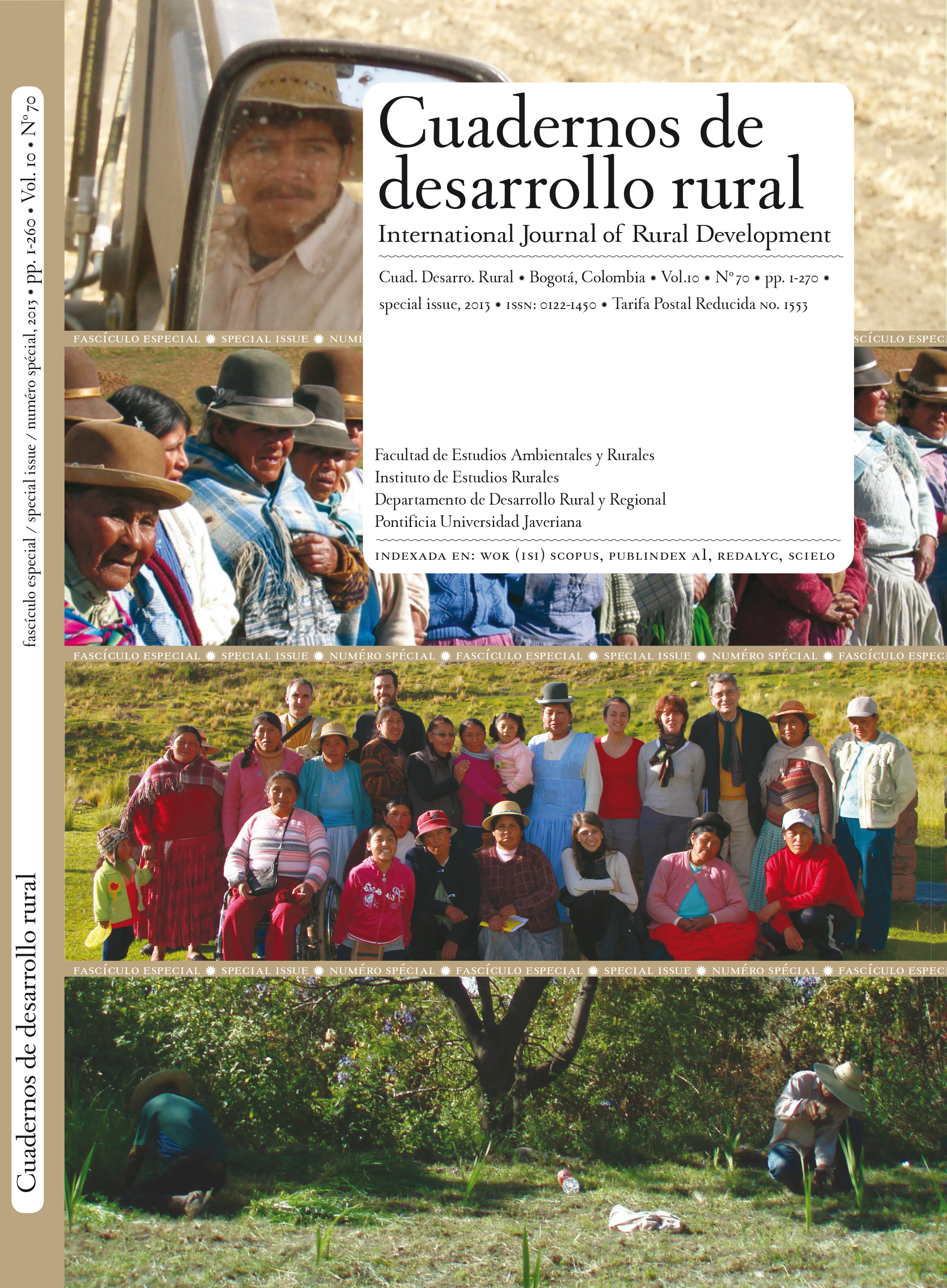Abstract
This paper shows a conceptual framework which synthesizes the evolution of the “modern project” and its dominant values, reaching to a new approach for the planning of rural development projects in the post-modernity: Working With People (WWP). The WWP model proposed is integrated into international discussions of “social learning” and it incorporates key elements of planning as social learning, collaborative participation theory and project management models. WWP is the result of 25 years of experience from the research group GESPLAN in several European contexts and emerging countries. The WWP implementation has led to different methodologies and applied research. This new way of thinking opens up new fields of research in rural development projects planning, evaluation and management.Cuadernos de Desarrollo Ruralis registered under a Creative Commons Attribution 4.0 International Public License. Thus, this work may be reproduced, distributed, and publicly shared in digital format, as long as the names of the authors and Pontificia Universidad Javeriana are acknowledged. Others are allowed to quote, adapt, transform, auto-archive, republish, and create based on this material, for any purpose (even commercial ones), provided the authorship is duly acknowledged, a link to the original work is provided, and it is specified if changes have been made. Pontificia Universidad Javeriana does not hold the rights of published works and the authors are solely responsible for the contents of their works; they keep the moral, intellectual, privacy, and publicity rights.
Approving the intervention of the work (review, copy-editing, translation, layout) and the following outreach, are granted through an use license and not through an assignment of rights. This means the journal and Pontificia Universidad Javeriana cannot be held responsible for any ethical malpractice by the authors. As a consequence of the protection granted by the use license, the journal is not required to publish recantations or modify information already published, unless the errata stems from the editorial management process. Publishing contents in this journal does not generate royalties for contributors.


